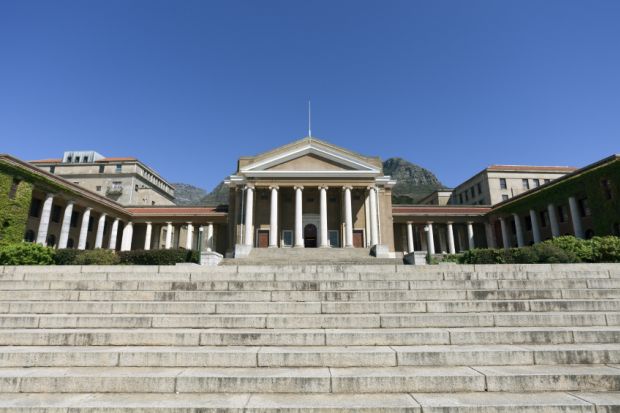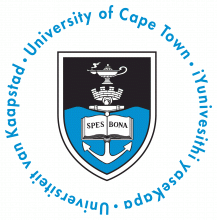The University of Cape Town has been forced to deny that it has suspended vice-chancellor Mamokgethi Phakeng.
South African media reported that Professor Phakeng, who is at the centre of an investigation into governance at UCT, had been told that charges against her would be dropped if she agreed to step down.
But she rejected this offer, leading to the reports of her suspension.
The row comes amid protests by UCT students over the non-registration of learners with outstanding fees, which forced a delay to the start of the academic year.
UCT’s council was scheduled to meet on 21 February to decide on Professor Phakeng’s fate.
The governance investigation is examining the renewal of former deputy vice-chancellor Lis Lange’s contract and questions over what council chair Babalwa Ngonyama had told the university senate about her return.
That probe is yet to conclude but local media reported that the university council had moved against Professor Phakeng following the receipt of additional complaints.
In a statement, the university denied that Professor Phakeng had been forced out. “UCT notes media reports around the status of the vice-chancellor,” a spokesperson said. “The university can unequivocally state that the vice-chancellor has not been suspended.”
In a message to UCT staff, seen by Times Higher Education, Professor Phakeng said that she had been dealing with the issues raised by student protests when reports emerged that she had been suspended.
“I think it is important that I make you aware that I know nothing about this and therefore will remain in office and active until I receive formal notification from HR,” she added.
In a statement, council chair Ms Ngonyama acknowledged the impact of “instability within the executive team”, plus the student protests and industrial relations tension.
“This is not how we envisaged 2023 beginning. We expected the university to return to a level of normalcy,” she said.
Ms Ngonyama said that the council had met on 9 February “to discuss issues around the vice-chancellor and the instability of the executive team and took certain resolutions”.
“We have scheduled a meeting early [this] week to thoroughly and thoughtfully consider options and potential resolutions, after which we will report back to you with the way forward. We do not want to pre-empt any outcome,” Ms Ngonyama wrote.
She urged staff and students to give the council “the time and space to deal properly with these complex issues in the best interest of UCT”.
Meanwhile, UCT has secured a court order prohibiting any further disruption by the Students’ Representative Council, meaning that classes were due to resume on 20 February.
Register to continue
Why register?
- Registration is free and only takes a moment
- Once registered, you can read 3 articles a month
- Sign up for our newsletter
Subscribe
Or subscribe for unlimited access to:
- Unlimited access to news, views, insights & reviews
- Digital editions
- Digital access to THE’s university and college rankings analysis
Already registered or a current subscriber? Login








